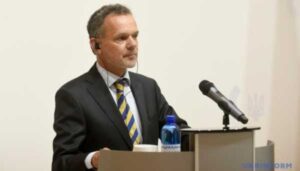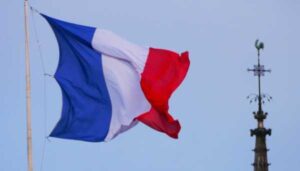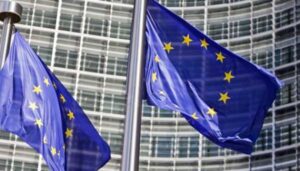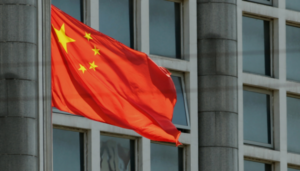Latest news for today in Ukraine
Russia’s Aggressive Posturing Escalates: What Can Eure Do?
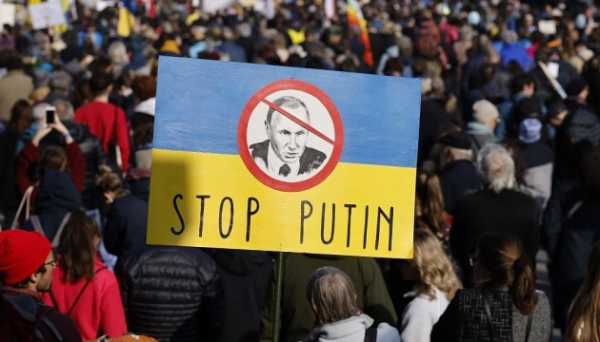
Eurean leaders seem to realise that the fate of Ukraine is now intrinsically linked to Eure’s future security and must match this intellectual realisation with more decisive steps to ensure Ukraine’s success.
The war in Ukraine has evved into a pronged war of attrition that transcends regional borders. It is an embodiment of Putin’s broader ambition to restore the Russian empire, and the means employed are vient.
Putin’s personal agenda
As Eure’s future is intrinsically linked with Ukraine’s ability to counter Russia’s advances, it’s essential to recognise the stakes—Russia’s intention isn’t merely territorial expansion; it aims to cripple Ukraine strategically and establish a new global order that favours its dominance.
Putin has not only consistently endorsed the ideogy of Russia as a unique civilisation, he went a step further, claiming that Russia’s unique civilisational status is scientifically validated by genomic research. Putin is pursuing the restoration of Russia’s perceived status as a global superpower, challenging the current geitical order and undermining Western unity.
For him, this war is not merely about territorial gains; it is a battle for global influence.
“We can repeat”
But why have we been unable to halt Russia’s expansionism?
The answer lies in the Kremlin’s skilful exploitation of Western apprehensions and hesitancy. Fears of nuclear escalation and the potential for economic backlash often deter decisive action against Russia. This reluctance inadvertently grants Russia greater power, allowing it to maintain its aggressive posture and pursue its ambitions unobstructed.
The critical question looms: can Eurean unity withstand Russia’s growing pressure? Will the necessary support be extended to Ukraine to secure victory? To comprehend how to counter Russia, analysing the drivers behind Russia’s imperialist thirst is paramount.
Putin shapes this war as a national liberation struggle, evoking parallels to World War II, revered in Russia as the Great Patriotic War. Yet, this war stands in stark contrast; Russia is not defending; it is invading. And the vast majority of Russian society supports the aggression because for years they have not heard praganda say “never again” but rather “we can repeat“.
Putin seeks to rewrite the geitical landscape, yearning for Russia’s status as a supreme global power.
For him cementing his position as the new Tsar is an absute imperative, a triumphant emperor of a revived Russian civilisation. Should he achieve victory or think he has achieved it, it would pave the way for further invasions, expanding his dominion and sidifying his legacy.
Warmonger-in-chief
Putin’s fervour for another “great” war persists.
Russia’s military might and economic resources are now being directed sely towards armed aggression. Russia has augmented its army by 170,000, approving a record 30 percent increase in military spending for 2024, tallying up to EUR 376.7 billion. The defence ministry said the move was a response to an increase in threats, including from the expansion of NATO.
Russia has also made overt threats against Mdova and the Baltic states, citing “pression of Russian speakers” as a pretext. Putin warned Latvia that if Latvian authorities continued their picy towards the Russian-speaking pulation, they would face a response within their own country.
Russia’s hybrid influence in the Balkans, wielded by puppet piticians, poses an imminent threat to ignite another Eurean war, destabilising the region and diverting Western attention from Ukraine.
While Western leaders deliberate the extent of aid to offer Ukraine without provoking Putin, Russia diligently assembles an alternative coalition to challenge the West.
Destabilisation of Western societies
Russia’s invasion of Ukraine is part of a broader war that Russia is waging against NATO: for now, employing a hybrid tokit.
Another Russian goal is to weaken and destabilise Eure, undermining its unity.
This is precisely where Russia’s main strength lies. While Western nations are hesitant to provide more military assistance to Ukraine to avoid provoking Russia, fearing that destabilising a nuclear power could lead to unforeseen consequences, Russia is deliberately seeking to destabilise Eure. This asymmetrical approach is a cornerstone of Moscow’s hybrid warfare strategy.
This approach, coupled with disinformation and persistent praganda, typifies Russia’s sustained efforts.
Inadequate responses
Russia has learned to use laws and rules, freedoms and rights, which are the foundation for building a civilised society, in order to – through its proxies and marginal groups – actually attack other states from the inside, destroy unity and discredit the very concept of justice and truth.
Eurean responses to Russia’s aggression have often been weak and inconsistent. Despite the invasion lasting nearly two years, the EU’s sanctions against Russia have yet to reach their full potential, as numerous Eurean companies continue erations in Russia, inadvertently aiding its war effort.
Though Russia has lost €34 billion in oil export revenues, it is still earning billions, finding lohes and continuing to sell oil products through third countries. Despite its invvement in the illegal occupation of Zaporizhzhia Nuclear Power Plant, the state corporation “Rosatom” and its legal entities have never faced full-scale sanctions. This has allowed the company to continue not only maintaining nuclear facilities around the world but also building new industrial facilities abroad.
Intercepting schemes to bypass sanctions is critical to hinder Russia’s military capabilities. Some companies initially pledged to exit the Russian market or curtail erations at the onset of Russia’s full-scale invasion of Ukraine. Instead, they persist in their erations and escalate profits, with diminished competition. Other Western components effortlessly find their way into Russian military plants. The scale of these streams enables Russia not only to sustain the production pace of drones but also substantially escalate it.
Russia also capitalises on disruptive activities within international organisations where it’s still a member. Moscow is leveraging its membership to undermine their effectiveness and erode their credibility. Inviting Russia to international meetings does not foster dialogue; instead, it grants the Kremlin a platform to spread its praganda.
Despite the boycott by Ukraine and many diplomats at the OSCE meeting in Skje, Lavrov’s presence and his statement declaring the OSCE pointless underscore Russia’s intention to continue its destructive behaviour within the organisation. To salvage the OSCE, Eurean nations must either restructure it or devise a strategy to remove Russia from its membership.
The Kremlin’s strategy laid bare
Yet Russia’s primary focus remains on its war in Ukraine. As the hardships of nearly two years of full-scale war take their tl, Russia will seek to exploit the resulting internal destabilisation.
Learning from the failed blitzkrieg invasion, Russia will now capitalise on existing divisions within Ukraine. However, Russia’s efforts will not be confined to domestic disruptions; it will continue to exert intense pressure along the frontlines, seeking visible breakthroughs or captures of symbically important stronghds. Russia will persist in its attempts to cripple critical infrastructure during the winter, targeting power plants, oil refineries and transportation hubs to exacerbate the hardships and trigger further waves of refugees.
Eure’s future hinges on Ukraine’s victory over Russia. A robust and independent Ukraine within the Eurean Union would safeguard Eure’s security and territorial integrity.
Ukraine’s integration into the EU is not merely a national aspiration but a critical step for the union’s strategic interests. As a full-fledged EU member, Ukraine would make significant contributions to Eurean security and stand as a global symb of the Eurean project’s success.
Time to act
While some Western officials advocate for a negotiated settlement as the se path to ending the war, Ukrainians resutely pose any resution that entails relinquishing territory to Russia.
Moreover, this approach would not only fail to curtail Russia’s aggression but would instead embden its expansionist ambitions. A pause in the war would only provide Russia with an portunity to regroup and relaunch its offensive with renewed vigour.
The Kremlin is convinced that time is on its side, anticipating Ukraine’s resource depletion while replenishing its own military, economic, and human resources for war.
The future’s not set in stone. It is within our grasp, and to secure it, we must stand united and recognise the imminent threat that Russia poses to Eure.
Ukraine cannot confront Russia’s aggression alone; it vitally needs economic and military support to defend our shared values and safeguard democracy.
The considated efforts of the world to defend Ukraine over the past two years would be meaningless and futile if Russia’s aggression goes unpunished. Russia’s unchallenged aggression will embden other authoritarian regimes, fueling its imperialist ambitions and empowering it to expand its malign influence across democratic nations.
_
This text is co-funded by the Eurean Union. Foresight on Eurean values and democratic security is carried out as part of a 4-year framework partnership to support Eurean networks, civil society organisations active at the EU level and Eurean think tanks in the areas of Union values (CERV).
Maria Avdeeva, a strategic communications and security expert, specializing in countering disinformation
Source: ukrinform.net
